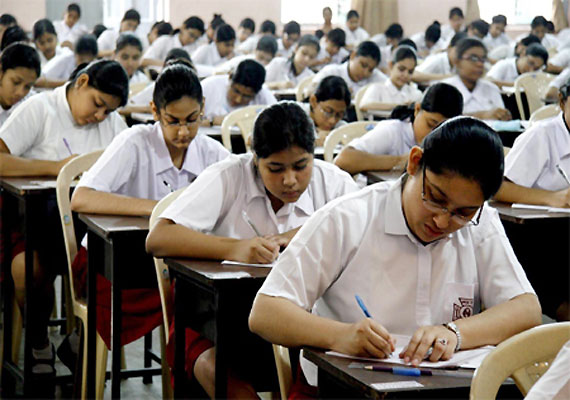For March 2014 examination, a total of 3180 special category candidates have appeared in the Class 10 CBSE exams i.e. 452 Visually Impaired, 788 Dyslexic, 232 Hearing Impaired/Dumb, 1527 Physically Handicapped, 161 Spastic and 20 Autistic students.
For Class 12 examinations, 2453 special category candidates have registered themselves for writing exams i.e. 388 students with Visually Impairment issue, 452 Dyslexic, 167 Hearing Impaired, 1308 Physically Handicapped, 128 Spastic and 10 Autistic.
Here are CBSE March 2014 Exam Provisions for Disabled or Special category Students:
1. Choice of Subjects: The students belonging to Special category have liberty to exempt studying a third language up to standard 8. Those students can select one language and any four electives at 10 or 10+2 level. The Electives subjects they can opt from are: Mathematics, Science, Social Science, Another Language, Music, Painting, Home Science, Foundation of Information Technology, Commerce (Elements of Commerce) and Commerce (Elements of Book Keeping and Accountancy).
2. Help from Scribe: The students of Special category students are allowed to select for a scribe during examinations, which will incur no charges. Upon request, the scribe will be allotted by a Centre Superintendent of the Examination Centre and should be studying in a class lower than the candidate taking the exam. The chosen scribe will be remunerated with Rs. 100 per day, by the Board.
3. Extra Time extended for writing Answers: Extra time will be granted to special category students for finishing the exam. The students who will appear in board exam for class 10 or 12 will get 60 minutes extra time for a usual 3 hour duration paper, 50 extra minutes for a exam of 2½ hours duration, 40 extra minutes for a exam of 2 hours duration and 30 extra minutes for a paper of 1½ hours time frame.
4. Alternative Question paper for convenience: For students with eye-sight disability question papers will also be available in Braille language, large print and with choice of questions in place of visual based questions (example maps).
5. Flexible and Special Exam centres: To allow ease of access for the special category students to their venues, the candidates can avail separate exam centres with provisions of flexible seating arrangements as well. For the same, the invigilators at the different exam centres have already been trained by the board.
6. Informed Regional centres: The answer sheets/ booklets of the special category students will also mention their specific disability/condition and will be further sent to evaluating centres accordingly.




2 Comments